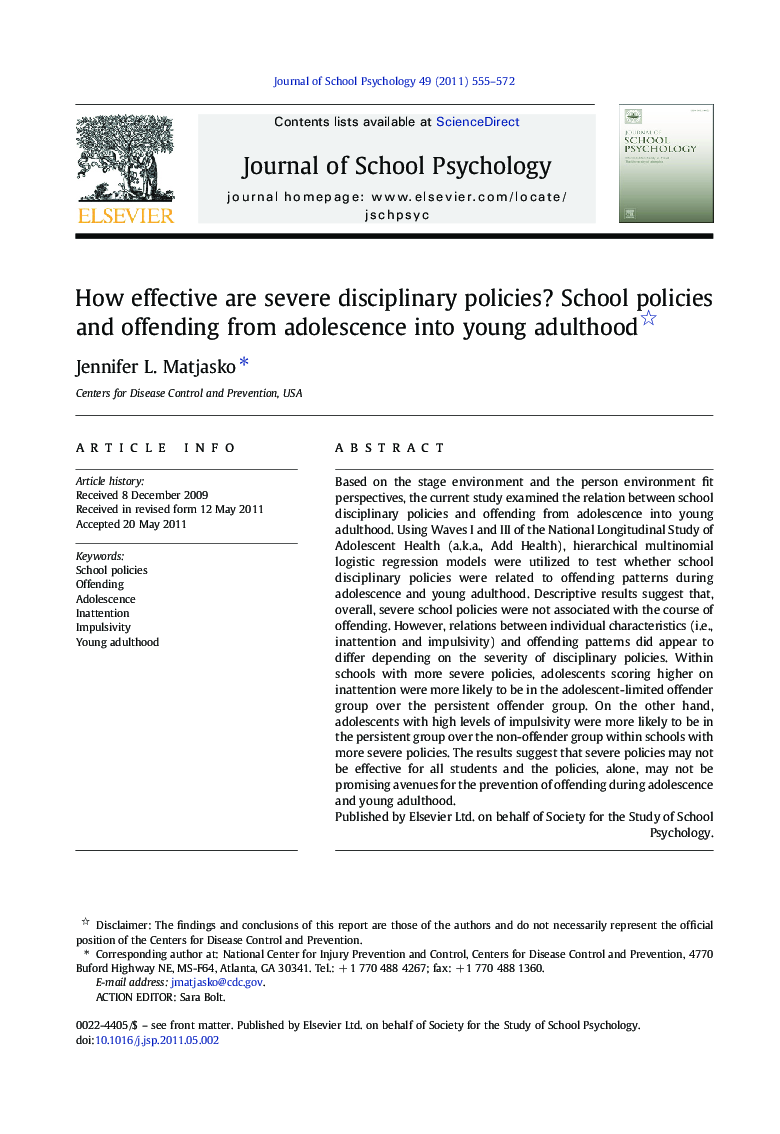| Article ID | Journal | Published Year | Pages | File Type |
|---|---|---|---|---|
| 363794 | Journal of School Psychology | 2011 | 18 Pages |
Based on the stage environment and the person environment fit perspectives, the current study examined the relation between school disciplinary policies and offending from adolescence into young adulthood. Using Waves I and III of the National Longitudinal Study of Adolescent Health (a.k.a., Add Health), hierarchical multinomial logistic regression models were utilized to test whether school disciplinary policies were related to offending patterns during adolescence and young adulthood. Descriptive results suggest that, overall, severe school policies were not associated with the course of offending. However, relations between individual characteristics (i.e., inattention and impulsivity) and offending patterns did appear to differ depending on the severity of disciplinary policies. Within schools with more severe policies, adolescents scoring higher on inattention were more likely to be in the adolescent-limited offender group over the persistent offender group. On the other hand, adolescents with high levels of impulsivity were more likely to be in the persistent group over the non-offender group within schools with more severe policies. The results suggest that severe policies may not be effective for all students and the policies, alone, may not be promising avenues for the prevention of offending during adolescence and young adulthood.
